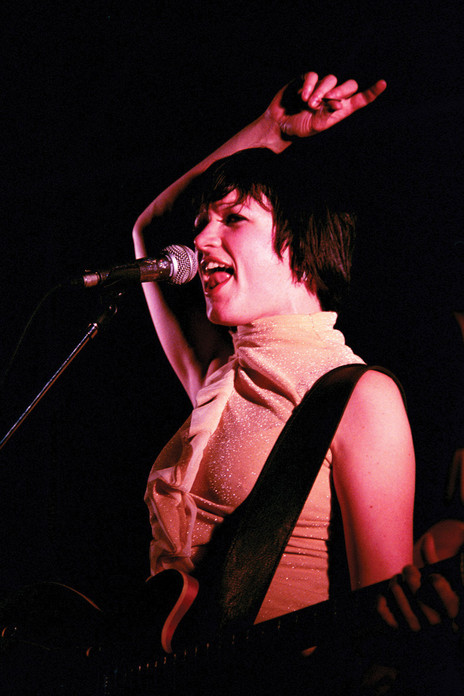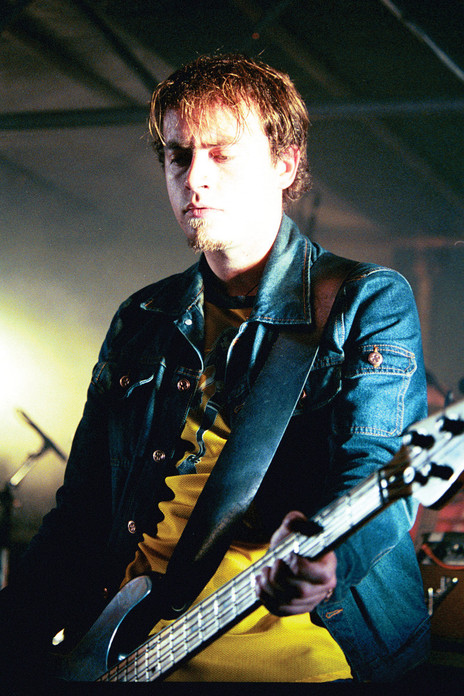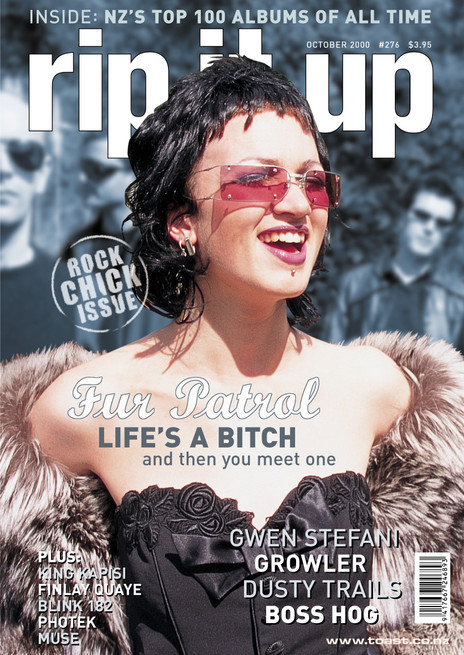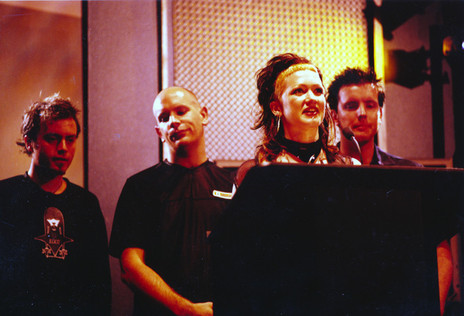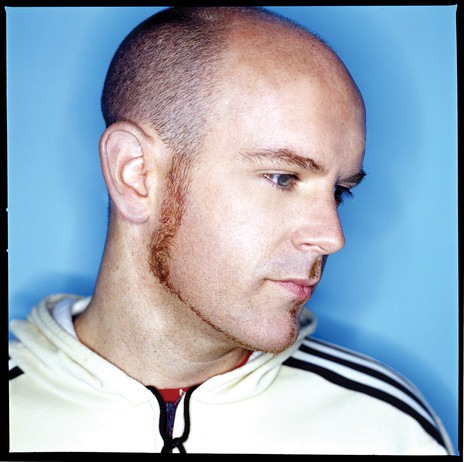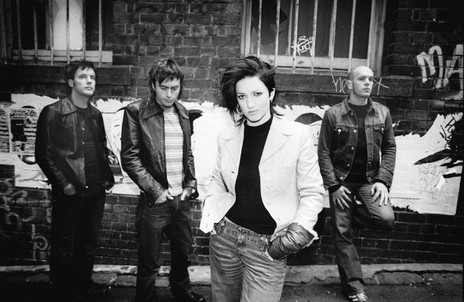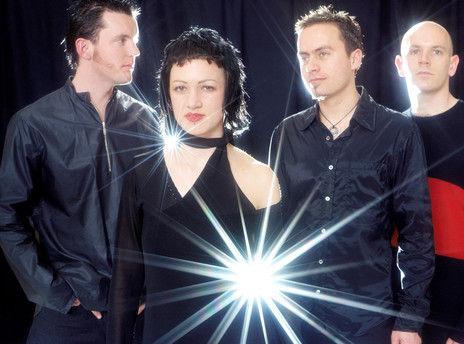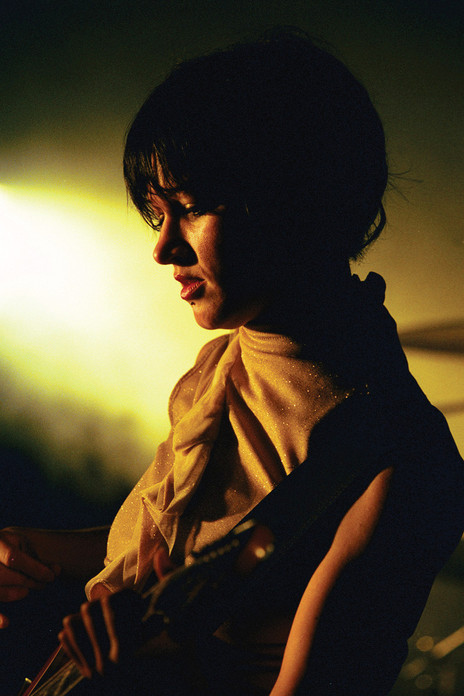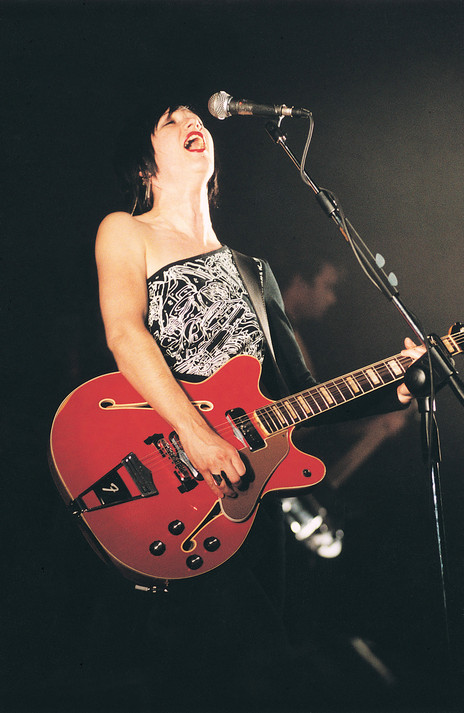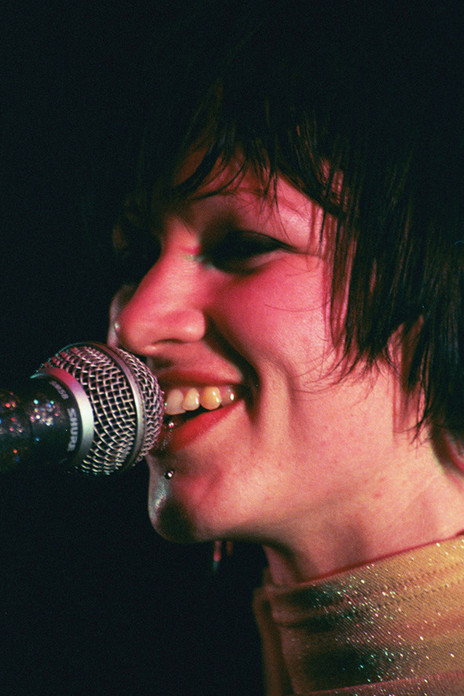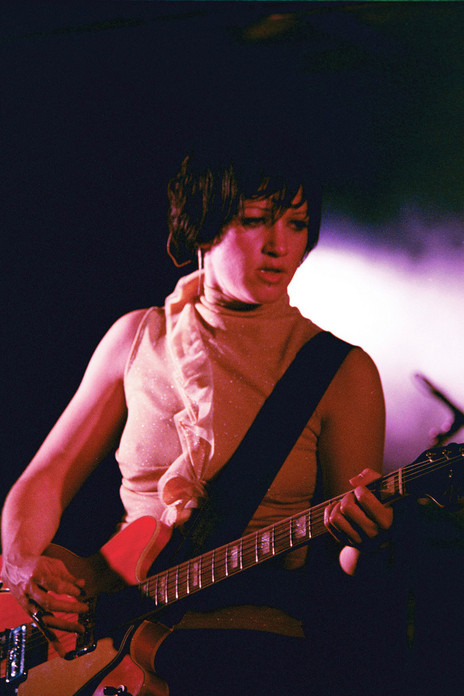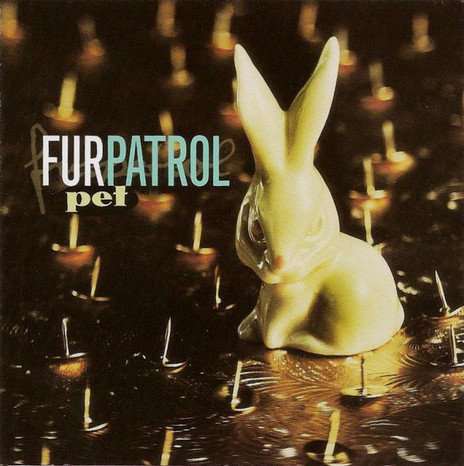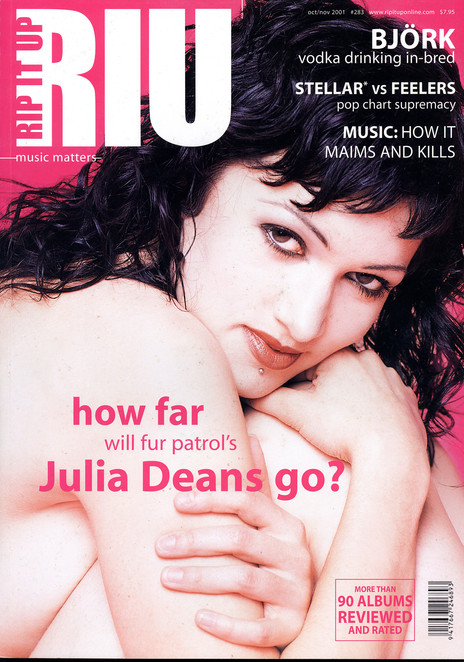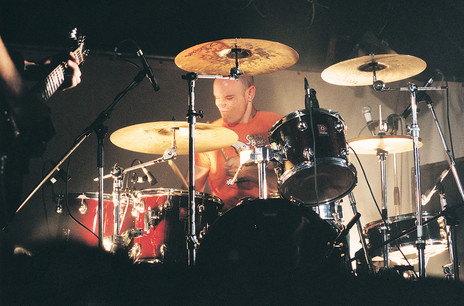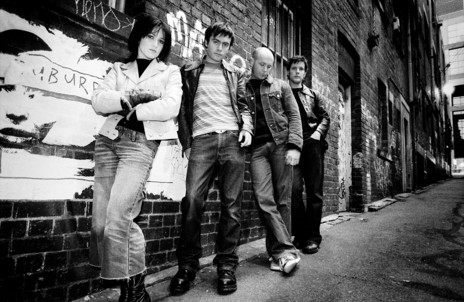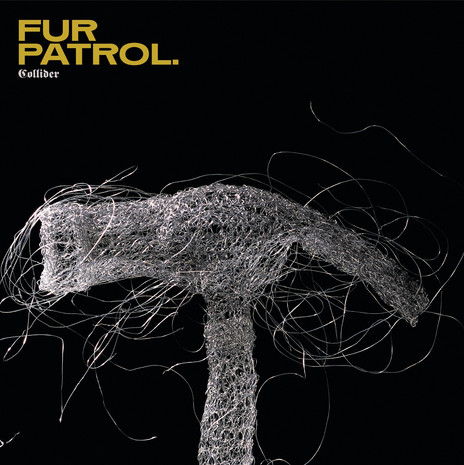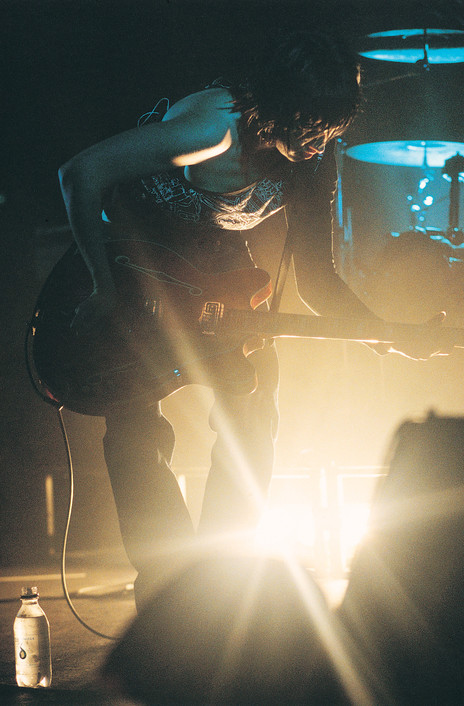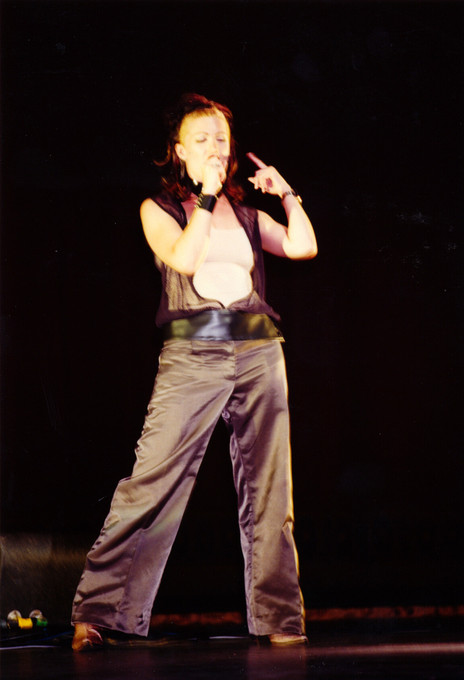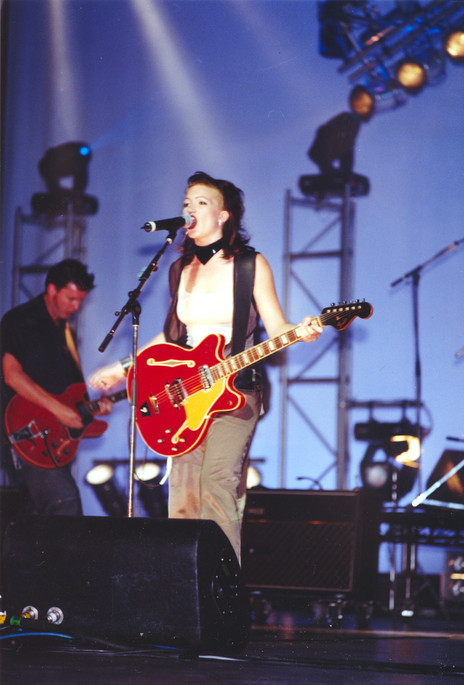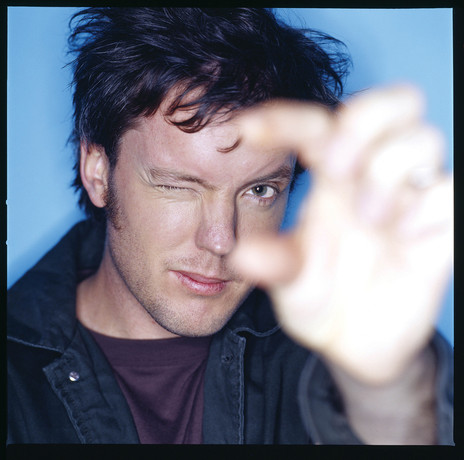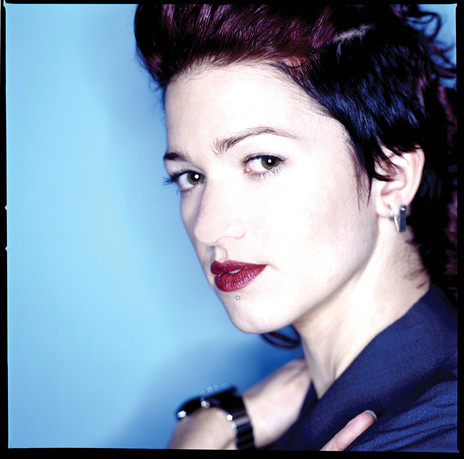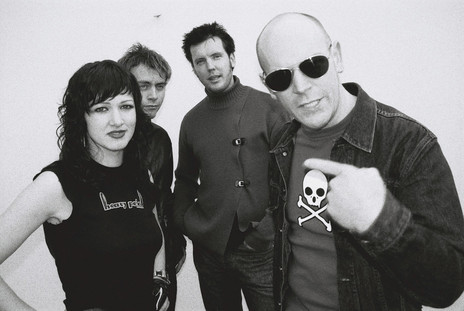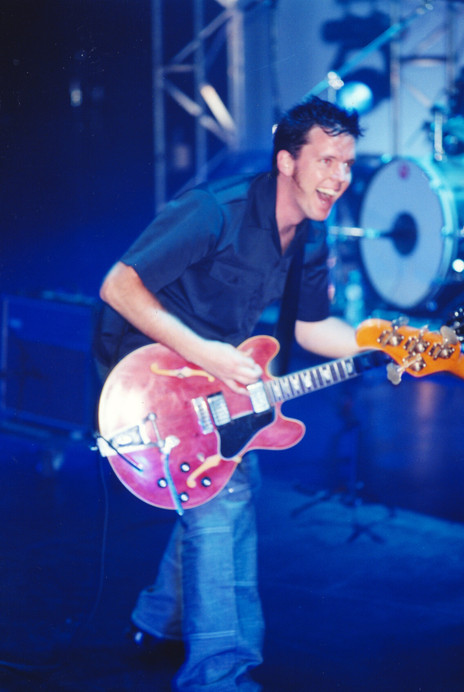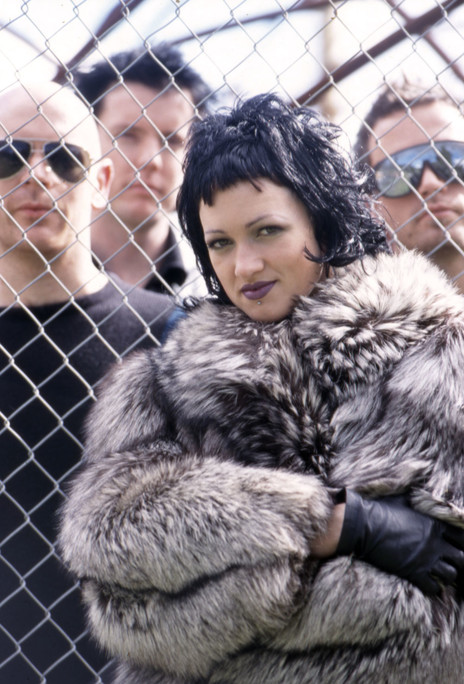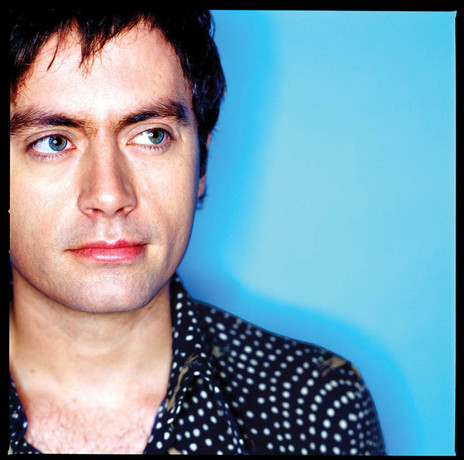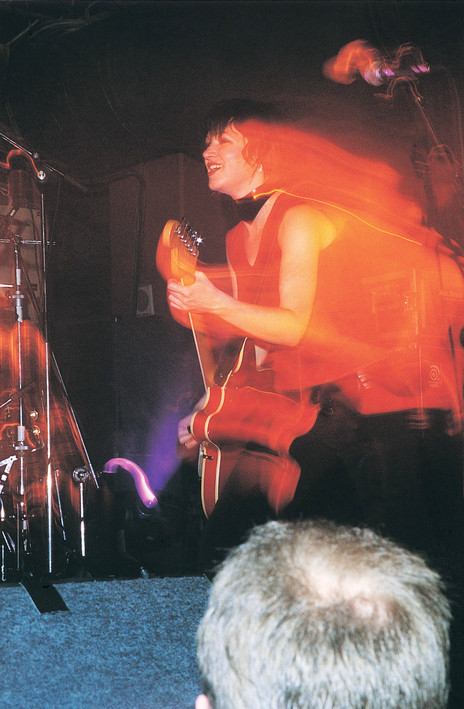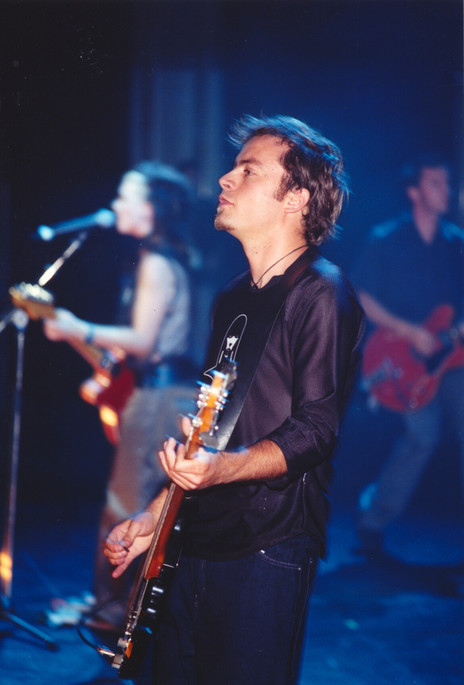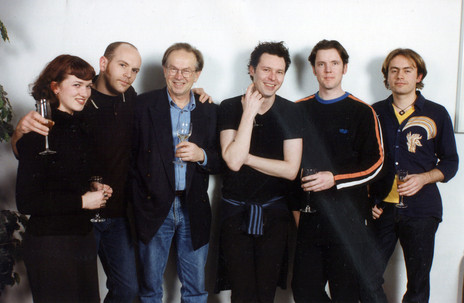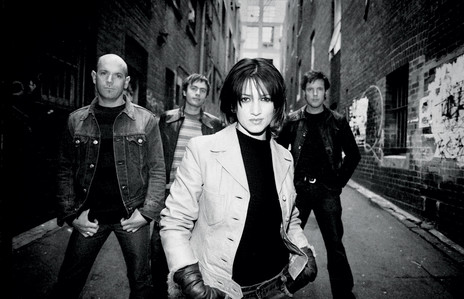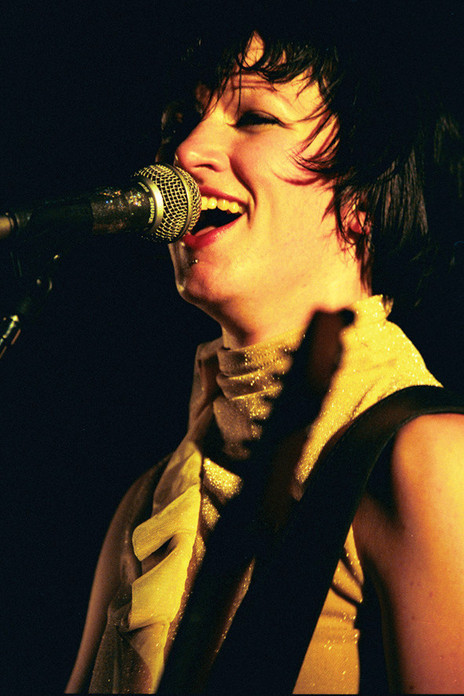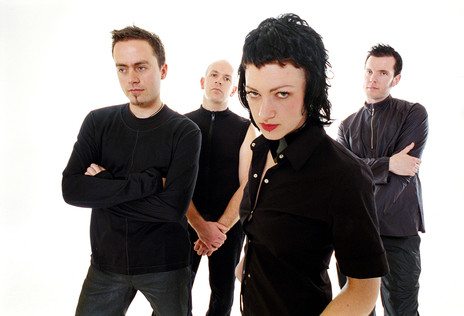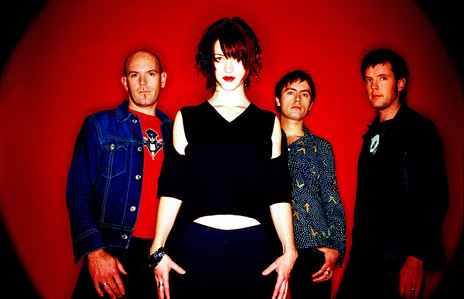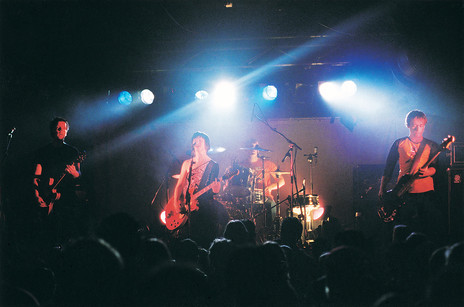Lead singer and songwriter Julia Deans made a tight team with bassist Andrew Bain, guitarist Steve Wells and drummer Simon Braxton. Bain and Wells are Wellingtonians, they hung out at high school and might have played together in a Christian rock band. They were definitely playing in a Wellington band called Svelte in early 1990s when they met Julia Deans.
What they needed was a name. inspiration came in the form of hair removal ads and Fur Patrol was born.
Deans had moved to Wellington from Christchurch and was gaining what she called her “tertiary education” playing guitar and singing vocals for a local thrash Irish cover band, Banshee Reel. The daughter and granddaughter of artists, Deans had taught herself guitar at 15 and soon started writing and performing her own songs. By 1995 she was getting bored with playing covers so recruited Bain, Wells and Braxton to help develop and record some demos. After weeks of rehearsing they decided to take the jump and booked a slot at Bar Bodega. What they needed was a name. Inspiration came in the form of hair removal ads and Fur Patrol was born.
The band started recording material in 1996 at Marmalade Studios but their first EP, Starlifter, wasn’t recorded until two years later, after a lengthy period spent negotiating with the Wishbone label. They were getting a good reputation as a live act; Deans had honed her front-woman skills in front of god knows how many Guinness-swilling patrons, her voice reached the back of the room and the bass and rhythm section were locked in. Deans had a visual confidence, her chopped fringe, choker necklaces and touch-of-gothic style matched her powerful delivery and evoked the likes of Garbage’s Shirley Manson and maybe even PJ Harvey.
Like those other strong female vocalists she was a chameleon and knew how to reach through a screen. Starlifter was released 6 June 1998 and soon the single, ‘Man In A Box’ started getting airplay on student radio and Channel Z. A wall of guitar and playful, tongue-in-cheek lyrics, the song attacks and retreats and sounds a bit early-era Radiohead. Deans’s confidence as a storyteller and vocalist is immediately evident. ‘Dominoes’ showed another side of the band: a sweet, country flavoured twang. The video was an idea that probably should have stayed on paper – the band playing in an empty pool which quickly fills up with pretty rank looking water. Little did they realise they had started a game called “let’s see what we can do to our instruments”; their mega-hit ‘Lydia’ featured the “no instruments at all” approach and, years later, the video for the single ‘Great Leap Forward’ is like one of those office team-building days with the band going bush, assembling twigs, leaves and tree stumps to reinvent their gear.
Starlifter announced the arrival of Fur Patrol as a band that could deliver live and in the studio. They often shared gigs with other blistering Wellington groups including Weta, Shihad, and Letterbox Lambs. Former Six Volts and Mutton Birds member David Long came on board to produce their debut album and in 2000 Pet was released. Its cover image – a cute bunny surrounded by upturned tacks – fits the bill; the music inside was ear-friendly but retained an edge, whether lyrically or with a blast of guitar. Bain in particular loved noisy indie music and that influence is clearly present.
Early singles ‘Now’and ‘Holy’ were strong, but didn’t set the world on fire. When ‘Lydia’ hit the airwaves, everything changed. The story behind one of the biggest Kiwi hits of the early millennium, Deans insists, is simple. “It was written in the space of 10 minutes, it just sort of fell into existence.” She shows her skill as a writer by approaching an old story of love fading away as a voyeur, observing the old lover and his new date with the lightest of sneers. The chorus lifts up and reveals the hurt, as great love songs do.
“Lyrically,” says Deans, “I was talking to myself.”
‘Lydia’ hit No.1 on December 24 2000 and was embraced not just as an instant pop hit, but as a memorable music video. Bains, Braxton and Wells wear their best poker faces and play their invisible instruments, Deans plays the lover, old and new. The band recreated their group mime while playing their hit song at the 2001 NZ Music Awards before collecting their two gongs, for Single of the Year and Top Female Vocalist. Pet was impressive for its variety of moods, the lovely ‘Spinning A Line’ recalls the sweet country swing of ‘Dominoes’, and ‘Andrew’ mixes cute pop and cutting chorus effortlessly.
Fur Patrol was on a roll, and journalists wanted to talk – mainly, it seemed, with Julia Deans. She wasn’t the only woman fronting a pop band in New Zealand or Australia in the 90s (see Stellar* or Tadpole for examples) but one major comparison was always nearby. In Rip It Up (March 2001) the band discussed the old “Debbie Harry syndrome”. Drummer Simon Braxton admitted he found this a bit galling as he was “a big show-off”. Deans admitted to gritting her teeth at some of the questions fired her way.
Deans gritted her teeth at some of the questions fired her way.
Bain put it simply in an interview with Grant Smithies in 2016: “She wasn’t just some sort of rock chick cliché – she was a great songwriter with an unusually strong voice, and a lot of swagger and stage presence. Of course, it didn’t hurt that she was also hot ...”
The success of ‘Lydia’ coincided with the band relocating to Melbourne. It was by no means easy. Steve Wells had a partner and child in Wellington, and the move, while introducing them to bigger audiences, required a lot of hard work and frequent travel – and the sharing of motel rooms.
“We left our comfort zone,” said Steve Wells in 2001. “Suddenly no one knows who we are and we’ve got to play a shit-load of shows to get our name out there.”
Big name at home, a new player in Australia. The band took day jobs: pouring pints, rolling ice-creams, delivering mail, and when Bain and Wells were really broke, crawling around the attics of suburban Melbourne installing roof insulation.
Second album Collider didn’t emerge until 2003, as the band had to extricate themselves from what Deans described as a “phooey, absolutely stinky banana deal” with Warner. They signed to Universal, but some momentum had been lost. Collider differentiates itself from Pet in its rawer, noisier attitude. High-profile UK producer Mark Wallis came onboard and they recorded the album at Sing Sing Studios. Collider didn’t explore as many moods as Pet; the band was tight and they pushed the rock pedal a bit harder. ‘Precious’ hurtles along at pace, it’s Fur Patrol’s big, dumb rock song and the accompanying video (filmed at the Viper Room in Los Angeles) adopts a David Lynch-like storyline, with Deans collecting the severed ears of fans. In an interview with NZ Herald on a return trip home, Braxton summed up the difference between Pet and Collider this way. “Lydia has gone for a walk. But she’ll be back.”
“Lydia has gone for a walk,” said Braxton in 2003. “But she’ll be back.”
The band was getting a reputation as a great live act but in late 2004 Steve Wells decided he’d had enough and took his family off to Paris to become a fashion photographer. Fur Patrol had been in Australia for five years and the high points (nabbing prime slots supporting big rock acts like The Strokes and You Am I) were studded between months of pure grind, playing gigs, sharing rooms and working on the side. Collider didn’t get the traction they hoped for on either side of the Tasman. They took six months off to reassess and emerged as a three-piece.
In May 2007 they released EP Long Distance Runner, but in an interview for NZ Musician in 2008 Braxton called their third studio album, Local Kid, “probably the most ‘us’ you’ve ever seen or heard”. For ‘Local Kid’ the rock-out tone from Collider has been dialled back. The guitars are still to the forefront but the songs are in less of a hurry, with more breathing space, more subtlety. In short, Fur Patrol were battle-hardened and were now in it for themselves. By this stage they had left Universal and brought in Tony Cohen (sound mixer for Nick Cave) to workshop some songs, pre-recording most of the material at mate Tom Larkin’s home studio. In the same interview they recalled their first years in Australia and wished they’d “stuck to their guns” more in the face of bad advice. Released in 2008, Local Kid came out on Kiwi indie label Tardus, reflecting the band’s desire to gain back control. Deans said she wanted fans to appreciate “both ends of our spectrum” and their final Fur Patrol album achieved that easily.
In 2008 they decided to call it a day. Bain was homesick for Wellington and Deans was writing material better suited to a solo career. She had been doing lots of other projects over the years, flying back home every couple of months or so to sing at the Christchurch Jazz Festival or collaborate with a list of other Kiwi singer-songwriters. After devoting much of her adult life to the band, she found ending the dream tough, but her life as a songwriter and performer continued and is still evolving.
Now based in Auckland, Deans has popped up in dozens of collaborations: she worked extensively with old friend Jon Toogood (The Adults) and Shayne Carter, performed in Jesus Christ Superstar, sang in tributes to Joni Mitchell and Jacques Brel, and toured with Anika Moa and Anna Coddington. In 2010 she released her first solo album, Modern Fables, and in 2018 her second solo album, We Light Fire, was critically acclaimed. Simon Braxton remains in Melbourne and still works in the music industry.
In 2016 Fur Patrol reunited as a trio for a run of shows in Christchurch, Wellington and Auckland as support act for Andrew Bain’s favourite indie band, Swervedriver.
--
The twentieth anniversary of Fur Patrols’ Pet was marked with a re-release of the album on vinyl, though the accompanying tour had to be delayed until 2022 due to the Covid-19 pandemic.
– Update by Gareth Shute
